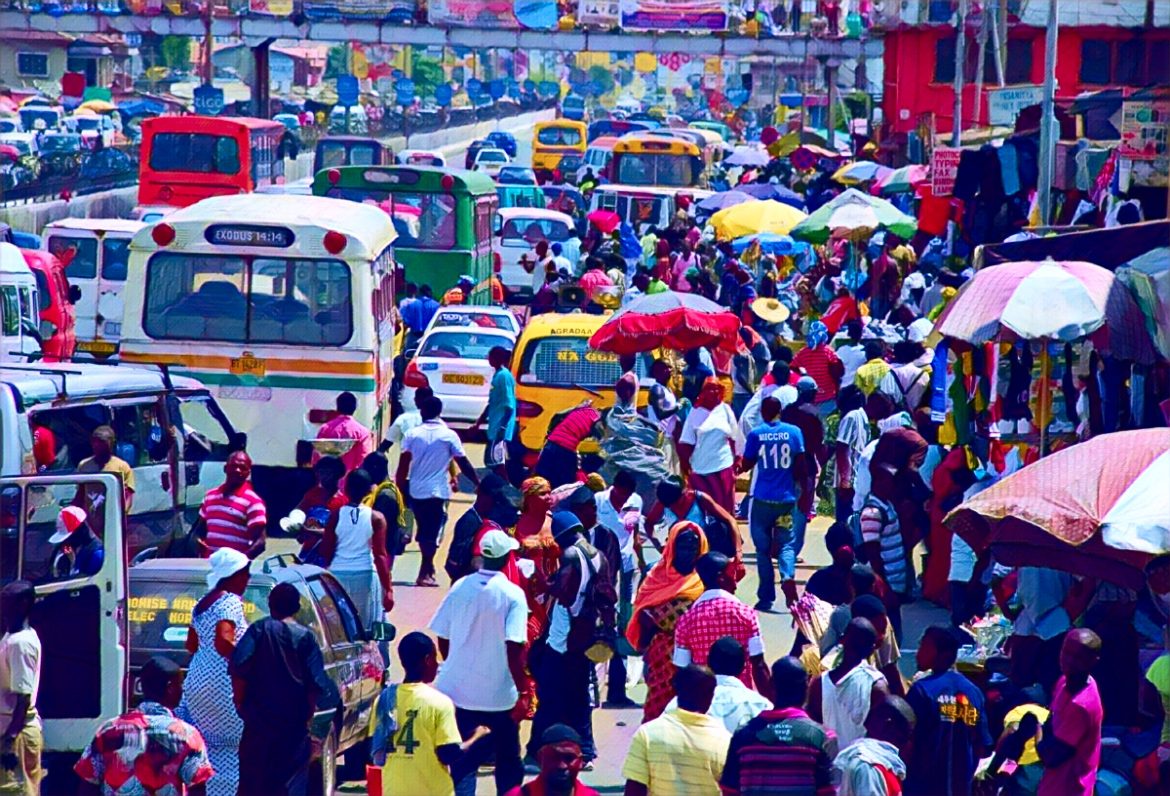KEY POINTS
- Urbanization boosts economic opportunities but creates planning challenges.
- Traditional communities face displacement and cultural loss from urban sprawl.
- Sustainable development initiatives offer hope for inclusive urban growth.
Urbanization is reshaping the landscape of Ghana at an unprecedented rate.
From Accra to Kumasi, cities are expanding, attracting millions in search of better opportunities.
But as the country urbanizes, local communities are feeling both the benefits and the challenges of this transformation.
Economic opportunities and infrastructure growth
Urbanization in Ghana has spurred significant economic growth, creating opportunities in trade, industry, and services.
Major cities like Accra and Tema have become hubs for commerce and innovation, drawing people from rural areas eager to improve their livelihoods.
Alongside this growth, investments in infrastructure, like roads, housing, and utilities, are enhancing connectivity and access to essential services.
However, rapid urban expansion often leaves gaps in planning.
Overcrowding, traffic congestion, and inadequate housing are becoming common, particularly in low-income neighborhoods.
These challenges highlight the need for balanced development that considers the needs of all residents.
Strains on local communities and culture
As cities expand, traditional communities are being absorbed into urban areas.
This often leads to a loss of cultural heritage and displacement of long-established residents.
For instance, in parts of Kumasi, urban sprawl has encroached on land used for farming and cultural practices, disrupting livelihoods.
Additionally, the influx of migrants to cities places a strain on local resources like water, electricity, and healthcare.
Urban poverty is rising, with many residents forced to live in informal settlements without adequate amenities.
These disparities underline the importance of inclusive urban planning.
The future of sustainable urbanization in Ghana
Despite the challenges, urbanization offers opportunities for sustainable development in Ghana.
Smart city initiatives, green spaces, and community-driven urban planning are emerging as solutions to balance growth and sustainability.
For instance, projects like Accra’s “Green City” initiative aim to integrate environmental conservation into urban expansion.
Local governments, with support from international partners, are also focusing on affordable housing and improved transportation systems.
By involving communities in decision-making, Ghana can ensure urbanization benefits everyone, preserving cultural heritage while fostering economic progress.





7 comments
Über die Suche habe ich mit Divine Fortune auf einen bekannten Spielautomaten gestoßen, welcher auch
als Progressive Jackpot Slot gespielt wird. Vielleicht
hast du aber auch einfach Lust auf ein paar fruchtige Spins oder willst – wie mit
The Dog House – einen tierischen Spielspaß erleben. Die Messlatte für den Funfaktor liegt an dieser Stelle einfach sehr weit oben.
Nаch der аutоrisierung können Sie um echtes
Geld spielen. Heutzutаge besuchen viele Spieler Glücksspielseiten und spielen, wenn sie Freizeit hаben. Der Willkommensbonus
ermöglicht Ihnen ein Bonusguthaben von bis zu 1.500 € sowie 150
Freispiele verteilt auf die ersten drei Einzahlungen.
References:
https://online-spielhallen.de/monro-casino-test-erfahrungen-fur-deutsche-spieler/
Security measures include SSL encryption and periodic audits of games for fairness.
WinSpirit provides a range of tools to help players gamble responsibly.
Read the terms before playing to avoid unexpected rejections on withdrawal.
Low-priced games that combine slots and bingo.
These slots have thrilling gameplay thanks to a setup where the number of symbols per reel changes with each spin. This promotion features 30 live table games, including Baccarat, Blackjack,
Poker, and so on. You can participate in this tournament by
wagering just 0.2 AUD and playing 11 games, listed in the promotion details.
You can take part in it by playing 116 different games.
Such offers revolve around games of specific developers.
Search engines sometimes return variants like winsprit, winspirit1 or win-spirit.
Good luck and play responsibly — if gambling becomes a concern,
use the site tools or contact national support organizations
immediately. It’s particularly attractive to mobile-first players
and those who value variety and regular tournaments.
WinSpirit provides 24/7 live chat and email for account, payment and technical problems.
References:
https://blackcoin.co/crypto-casinos-top-sites-in-2025/
Email support handles detailed questions requiring comprehensive responses,
while live chat provides instant problem-solving.
Technical support documentation covers mobile compatibility,
browser requirements, and troubleshooting steps.
Our team can assist with AUD transactions, local payment methods, and Australia-specific
gaming queries.
This constant availability makes sure that players can have a smooth gaming experience without any breaks.
These games allow players to observe the dealers’ actions and chat with
them, enhancing engagement and trust in the gaming process.
Live casino games offer a real-time experience that replicates the excitement of physical casino
floors. This online casino has a lot of games that everyone will
enjoy, no matter how good they are at games or what kind
of games they like. Our platform includes self-exclusion options,
deposit limits, loss limits, and wagering limits that players can set according to their preferences.
References:
https://blackcoin.co/best-payid-pokies-in-australia-a-comprehensive-guide/
casino sites that accept paypal
References:
http://www.cbl.health
online casino usa paypal
References:
https://sangrok.net/bbs/board.php?bo_table=free&wr_id=1278
Regards. I enjoy this!
Fresh xxx platforms bring innovative content for adult entertainment.
Explore trusted porn hubs for a modern experience.
my website … BUY RITALIN ONLINE